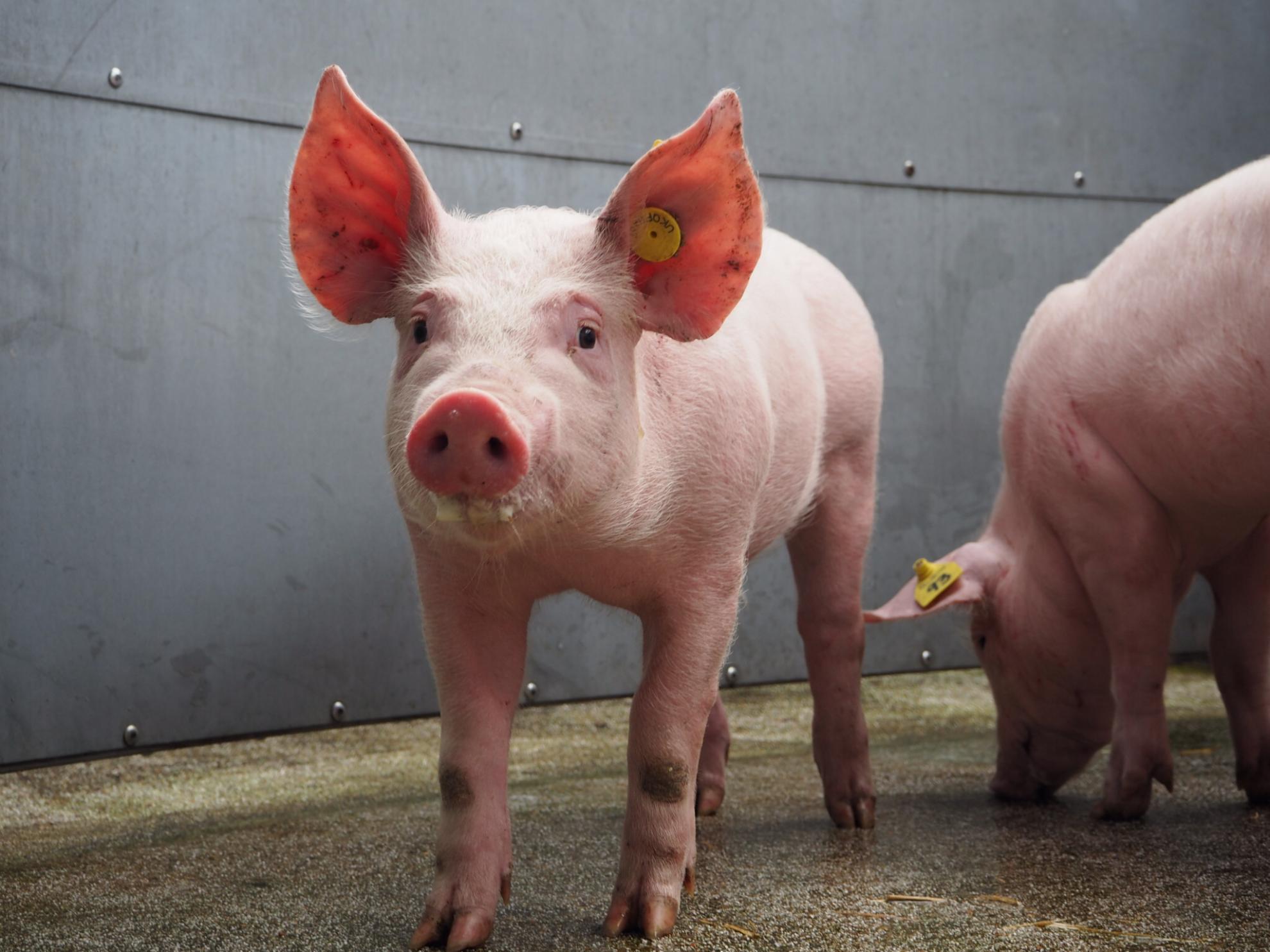The influenza virus (flu) is a major health threat to humans and animals such as pigs, causing illness and major economic losses to producers and farmers. Pig flu viruses can also sometimes jump from pigs to humans and cause pandemics, as happened in 2009.
There are many different strains of flu virus and currently each strain requires a unique vaccine. This means that new vaccines are constantly needed in order to combat the high amount of different virus strains that are created through mutation.
To avoid the continual need for novel vaccine production, scientists around the world have been researching the possibility of producing a universal vaccine that can protect against all strains of flu and stop the transmission of the virus.
Researchers at The Pirbright Institute, led by Dr Elma Tchilian, have shown for the first time that a candidate universal vaccine called S-FLU is effective in pigs. Professor Alain Townsend from the University of Oxford developed S-FLU, which is a weakened version of the flu virus. This weaker version can enter pig or human cells but is unable to spread because it cannot make a vital part of the virus; a protein called haemagglutinin.
S-FLU has already been shown to work in small animals such as ferrets and mice against infection with different flu strains. Scientists at Pirbright have now demonstrated for the first time that when pigs are given the S-FLU vaccine and then infected with swine H1N1 flu virus, the pigs produce less swine flu virus from their nose or lungs.
Dr Tchilian’s research also shows that immune cells in the lungs are important for protection against flu infection and that these cells can be most efficiently activated by aerosol delivery of the S-FLU vaccine into the lungs.
The swine flu virus used in the study is found in many pigs in the UK and is very similar to the virus that caused the pandemic in humans in 2009. The work carried out at The Pirbright Institute gives hope for the future and shows that S-FLU is a promising universal vaccine candidate that can protect against different influenza strains. Such a vaccine would be particularly useful at the onset of a threatened pandemic, before vaccine targeted to the pandemic flu strain could be manufactured.
Dr Tchilian said: “The impact of this study is potentially enormous for controlling disease in livestock and humans. We know that vaccination is a cost-effective way of protecting against flu, but the rapid evolution of the virus is a huge challenge. The flu vaccines we currently use are strain specific and new vaccines need to be made each year.
It is also very difficult to predict which viruses will case a pandemic. Our research with S-FLU shows that it may be possible to produce a ‘universal vaccine’ for use in pigs and humans, which could be used in the event of a developing pandemic.”
You can find the full paper on The Journal of Immunology website.
